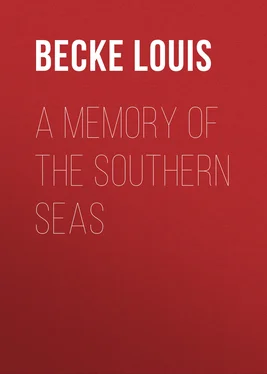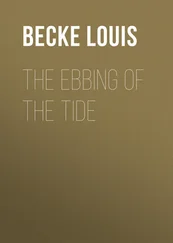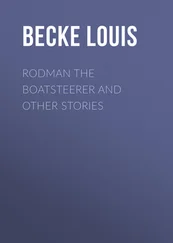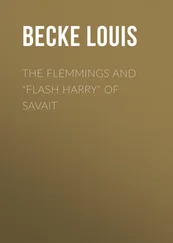Louis Becke - A Memory Of The Southern Seas
Здесь есть возможность читать онлайн «Louis Becke - A Memory Of The Southern Seas» — ознакомительный отрывок электронной книги совершенно бесплатно, а после прочтения отрывка купить полную версию. В некоторых случаях можно слушать аудио, скачать через торрент в формате fb2 и присутствует краткое содержание. Жанр: foreign_prose, literature_19, foreign_antique, на английском языке. Описание произведения, (предисловие) а так же отзывы посетителей доступны на портале библиотеки ЛибКат.
- Название:A Memory Of The Southern Seas
- Автор:
- Жанр:
- Год:неизвестен
- ISBN:нет данных
- Рейтинг книги:3 / 5. Голосов: 1
-
Избранное:Добавить в избранное
- Отзывы:
-
Ваша оценка:
- 60
- 1
- 2
- 3
- 4
- 5
A Memory Of The Southern Seas: краткое содержание, описание и аннотация
Предлагаем к чтению аннотацию, описание, краткое содержание или предисловие (зависит от того, что написал сам автор книги «A Memory Of The Southern Seas»). Если вы не нашли необходимую информацию о книге — напишите в комментариях, мы постараемся отыскать её.
A Memory Of The Southern Seas — читать онлайн ознакомительный отрывок
Ниже представлен текст книги, разбитый по страницам. Система сохранения места последней прочитанной страницы, позволяет с удобством читать онлайн бесплатно книгу «A Memory Of The Southern Seas», без необходимости каждый раз заново искать на чём Вы остановились. Поставьте закладку, и сможете в любой момент перейти на страницу, на которой закончили чтение.
Интервал:
Закладка:
On one occasion I fatuously took the monster out in my whaleboat to fish for takuo (a variety of tuna ) one calm starlight night when the ocean was like a sheet of glass. We pulled out over the reef, and when a mile from the shore lowered our heavy lines and began fishing. For nearly a quarter of an hour neither of us spoke, then he suddenly asked me in his fat, wheezy tones, if I would mind telling him something.
“What is it?”
“Will you tell me, friend, what are the English words that should be spoken by one of us of Nanomea to a ship captain, giving him greeting, and asking him if he hath had a prosperous voyage with fair weather? My heart is sick with envy that Pita and Loli speak English, and I cannot.”
Forgetting my past experiences of my man, I was fool enough to tell him.
“You say this: ‘Good morning, Captain; have you had a good voyage and fair weather?’”
He greedily repeated each word after me, very slowly and carefully; then he asked me to tell him again. I did so. Then he sighed with pleasure.
“Kind friend, just a few times more,” he said.
I told him the sentence over and over again for at least a score of times; and his smooth, fat face beamed when at last he was able to say the words alone. Then he began whispering it. Five minutes passed, and he tackled me again.
“Is this right?—‘Good—mornin’, kipen—ha—ad—you—have—goot—foy—age—and—fair wesser?’”
“That is right,” I said impatiently, “but ask me no more to-night. Dost not know that it is unlucky to talk when fishing for takuo and tautau? ”
“Dear friend, that we believed only in the heathen days. Now we are Christians.”
He paused a moment, then raised his face to the stars and softly murmured, “Good—mornin’ kâpen—haad—you—you—have—goot—foyage—and wesser—and fair—wesser?” Then he looked at me interrogatively. I took no notice.
He toyed with his line and bent an earnest gaze down in the placid depths of the water as if he saw the words down there, then taking a turn of his line round a thwart, he put his two elbows on his enormous naked knees, and resting his broad, terraced chin on the palms of his hands, he said slowly and mournfully, as if he were communing with some one in the spirit-world—
“Good—mornin’—kâpen. Haad—you—haave–” &c., &c.
Then I sharply spoke a few words of English—simple in themselves, but well understood by nearly every native of the South Seas. He looked surprised, and also reproachful, but went on in a whisper so faint that I could scarcely hear it; sometimes quickly and excitedly, sometimes doubtingly and with quivering lips, now raising his eyes to heaven, and with drooping lower jaw gurgling the words in his thick throat; then sighing and muttering them with closed eyes and a rapt expression of countenance, till with a sudden snort of satisfaction, he ceased—at least I thought he had. He took up a young coconut, drank it, and began again as fresh as ever.
“Stop!” I said angrily. “Art thou a grown man or a child? Here is some tobacco, fill thy pipe, and cease muttering like a tama valea (idiot boy).”
He shook his head. “Nay, if I smoke, I may forget. I am very happy to-night, kind friend. Good-mor–”
“May Erikobai” (a cannibal god of his youth) “polish his teeth on thy bones!” I cried at last in despair. That shocking heathen curse silenced him, but for the next two hours, whenever I looked at the creature, I saw his lips moving and a silly, fatuous expression on his by no means unintelligent face. I never took him out with me again, although he sent me fowls and other things as bribes to teach him more English.
These sand-mullet are very dainty-feeding fish. They are particularly fond of the soft tail part of the hermit crabs which abound all over the island, especially after rain has fallen. Some of the shells ( T. niloticus ) in which they live are so thick and strong, however, that it requires two heavy stones to crush them sufficiently to take out the crab, the upper part of whose body is useless for bait. For a stick of tobacco, the native children would fill me a quart measure, and perhaps add some few shrimps as well, or half a dozen large sea urchins—a very acceptable bait for mullet. My rod was a slender bamboo—cost a quarter of a dollar, and was unbreakable—and my lines of white American cotton, strong, durable, and especially suitable for fishing on a bottom of pure white sand. My gun was carried on the outrigger platform, within easy reach, for numbers of golden plover frequented the sand banks, feeding on the serried battalions of tiny soldier crabs, and in rainy weather they were very easy to shoot. The rest of my gear consisted of twenty or thirty cartridges, a box of assorted hooks, a heavy 27-cord line with a 5-in. hook (in case I saw any big rock cod about), a few bottles of lager, some ship biscuits or cold yam, and a tin of beef or sardines, and some salt. This was a day’s supply of food, and if I wanted more, there were plenty of young coconuts to be had by climbing for them, and I could cook my own fish, native fashion; lastly there was myself, in very easy attire—print shirt, dungaree pants, panama hat, and no boots, in place of which I used the native takka , or sandals of coconut fibre, which are better than boots when walking on coral. Sometimes I would remain away till the following morning, sleeping on the weather side of the island under a shelter of leaves to keep off the dew, and on such occasions two or three of the young men from the village would invariably come and keep me company—and help eat the fish and birds. However, they were very well conducted, and we always spent a pleasant night, rose at daybreak, bathed in the surf, or in the lagoon, and after an early breakfast returned to the village, or had some more fishing. It was a delightful life.
My canoe was so light that it could easily be carried by one person from the open shed where it was kept, and in a few minutes after leaving my house I would be afloat, paddling slowly over the smooth water, and looking over the side for the mullet. In the Nanomea, Nui, and Nukufetau Lagoons the largest but scarcest variety are of a purple-grey, with fins (dorsal and abdominal) and mouth and gill-plates tipped with yellow; others again are purple-grey with dull roddish markings. This kind, with those of an all bright yellow colour throughout, are the most valued, though, as I have said, the whole family are prized for their delicacy of flavour.
As soon as I caught sight of one or more of the sought-for fish, I would cease paddling, and bait my hook; and first carefully looking to see if there were any predatory leather-jackets or many-coloured wrasse in sight, would lower away, the hook soon touching the bottom, as I always used a small sinker of coral stone. This was necessary only because of the number of other fish about—bass, trevally, and greedy sea-pike, with teeth like needles and as hungry as sharks. In the vicinity of the reef, or about the isolated coral boulders, or “mushrooms” as we called them, these fish were a great annoyance to me, though my native friends liked them well enough, especially the large, gorgeously-hued “leather-jackets,” to which they have given the very appropriate name of isuumu moana —the sea-rat—for they have a great trick of quietly biting a baited line a few inches above the hook. Apropos of the “sea-rat,” I may mention that their four closely-set and humanlike teeth are so thick that they will often crush an ordinary hook as if it were made of glass, and as their mouths are exceedingly small, and many are heavy, powerful fishes, they cause havoc with ordinary tackle. But a fellow-trader and myself devised a very short, stout hook (1 1/2 inch of shank) with a barbless curve well turned in towards the shank; these we bent on to a length of fine steel wire seizing. They proved just the ideal hook for the larger kind of sea-rat, which run up to 10 lb., and the natives were so greatly taken with the device that, whenever a ship touched at the island, short pieces of fine steel wire rigging were eagerly bought (or begged for).
Читать дальшеИнтервал:
Закладка:
Похожие книги на «A Memory Of The Southern Seas»
Представляем Вашему вниманию похожие книги на «A Memory Of The Southern Seas» списком для выбора. Мы отобрали схожую по названию и смыслу литературу в надежде предоставить читателям больше вариантов отыскать новые, интересные, ещё непрочитанные произведения.
Обсуждение, отзывы о книге «A Memory Of The Southern Seas» и просто собственные мнения читателей. Оставьте ваши комментарии, напишите, что Вы думаете о произведении, его смысле или главных героях. Укажите что конкретно понравилось, а что нет, и почему Вы так считаете.












